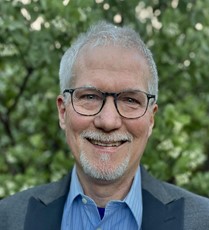by Chuck Fisher, Ph.D., Executive Director of Dovetail Learning
Editor’s note: Community Matters believes that in these extraordinary times the traditional 3 R’s of “reading, writing and arithmetic”, need to be amended with the following new 3R’s:
~Relationships
~Resilience
~Readiness
We are grateful to have our friend and colleague, Chuck Fisher, from Dovetail Learning, share his expertise and his personal experience on the 2nd R; Resilience. Both Community Matters and Dovetail Learning provide complementary services that support educators and students focused on school climate and culture, resilience, Social Emotional Learning (SEL), youth empowerment, and restorative practice approaches.
I was one of those kids in school who fell through the cracks. I was uprooted and moved every two years all the way through high school, from growing up in a military family. I also had multiple ACEs (Adverse Childhood Experiences) including physical, emotional, and sexual abuse, as well as being the lost child in an alcoholic family. I ran away from school in 3rd grade, I failed 6th grade, had suicidal ideation in middle school, and succumbed to drugs and alcohol in high school. By the time I finished 12th grade I thought I was a slow learner at best and dumb at worst. My academic self-esteem was in the gutter.
Fortunately, I loved athletics. I learned to swim like a fish at 3 in the Phillipines, I started martial arts (Judo) at 6 in Peru and karate at 16 in Virginia. I was on 3 varsity sports in high school and was a top-level rock climber by 21. What a weird dissonance! I dropped out of college because I was a lost learner.
Bonnie Benard, resilience researcher[1], says between 50% – 70% of traumatized youth learn to thrive. I am lucky I found my resilience. As a professional psychologist, I’ve seen too many young people fall the other way — through addiction, eating disorders, depression, and suicide — not to mention lost learning by kids like me.
The good news is we are all resilient when we tap into the magic inside us. What Anne Masten[2] calls our ordinary superpower:
“Resilience is an Ordinary Superpower. It does not come from rare and special qualities, but from the everyday magic of being human.”
I eventually discovered that I love to learn and now it is one of my very highest values. I had to drop being a victim of my circumstances to become the author of my own life. ACEs Aware, a CA initiative to drop Adverse Childhood Experiences by half in one generation is a leading force in bringing ACEs screening to pediatricians so that children and families can begin the healing journey. ACEs Connection has a multitude of resources for strength based practices for educators.
Most of us have experienced being hijacked from our best self and we also know how to bring ourselves back into balance—to center. But it takes practice and skill to do it well. I am now a black belt in Aikido—the peaceful martial art—and I practice Centering myself every day. I now train teachers, pediatricians, and families in the lost art of Centering, Connecting, and Collaborating. What we call personal resilience, relational resilience, and group resilience.
The next time you see a lost child, or a teenager caught in drugs/alcohol, think of me. There is a miracle inside of every child waiting to be found.
If you want to know more about the Open Education Resource called We Are Resilient™, which teaches Centering, Connecting, and Collaborating skills, it can be found at Dovetail Learning. “Working together, we can heal ourselves and generations to come. It’s all of us; We are the cure.” – Dovetail Learning
Chuck Fisher, Ph.D. is Executive Director of Dovetail Learning and an architect of the We Are Resilient™ approach. He has worked in and with schools as a teacher, school counselor, and psychologist his entire career. He is a former trainer for the Heartmath Institute and the Passageworks Institute on engaged teaching and has been a development partner and consultant on SEL curriculum.
